KILAUEA — A farmer in Kilauea is opening up his second class on bio-intensive, organic gardening. Space is limited.
Sun Hadley, master organic gardener and instructor of the Bio-Intensive Organic Gardening Class, has a saying when growing his plants in a small space: “How much can you eat?”
The new class will start on Sunday, May 23, in Kilauea, from 9 a.m. to noon each day.
Hadley has been a farmer on Kaua‘i for 30 years, started the only bio-intensive market garden in the state, and continues to grow that way today.
“We’ve been on this land six months,” Hadley said. “So we just started these gardens, got 28 beds, and 80 square feet each bed. It’s designed in the shape of a flower. And then the center part is where we have meetings and stuff. And someday we’ll make it a real community space.”
Hadley said in his class a new gardener can learn how to create a bio-intensive garden in his or her backyard. In the class, students will discuss which vegetables grow best in Hawai‘i, how to create balanced, remineralized soil that creates a balanced plant free of insect damage, and how to do a soil test before creating a bed.
Students will also learn how to create quality compost, how to prepare a garden bed, how to rotate the planting to help keep the soil healthy, and learn about some permaculture plants and practices — as well as how to use different plant varieties.
“I consult with many farmers and gardeners and have done extensive research, outreach and teachings,” Hadley said. “Just bring a notepad and pencil or pen. Mostly it’s to write down things that are going to jump out for you.”
Dealing with pests is another part of the course.
“(A) problem here on the island is that some of the plants are susceptible to a little critter in the soil called a ‘nematode,’” Hadley said. “And the nematodes will get on the beets or the chard in a heartbeat, or the lettuce or the okra.”
Also incorporated in the gardening class are tips on how to use superfood vegetables and fruit in order to boost health and vitality.
“All you do is eat more greens,” Hadley said. “I’m serious. No processed food. And make sure you’re taking a good vitamin and mineral supplement. Because most of those (processed) foods are empty.”
This isn’t the first time Hadley has grown a bio-intensive garden or taught others how to do it.
“I started up in Waipouli Road and a very famous garden up there for nine years straight,” Hadley said. “And it just got better and better. We are here and this is only six months of growing. That’s why I’m happy with sharing this with others.”
For more information, call 808-652-1591.
•••
Stephanie Shinno, education and business reporter, can be reached at 245-0424 or sshinno@thegardenisland.com.
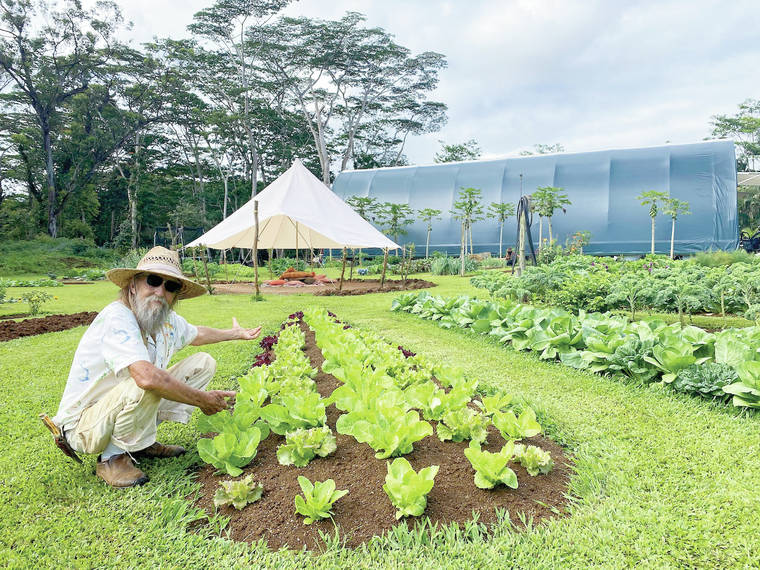
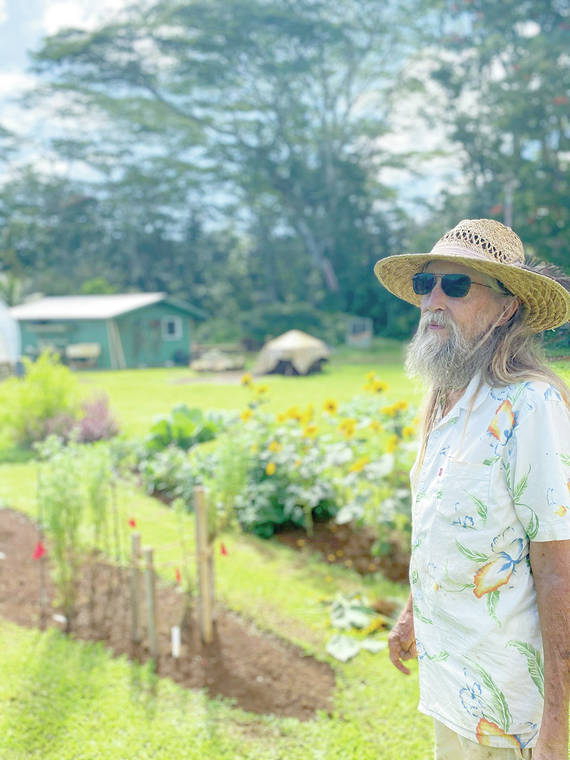
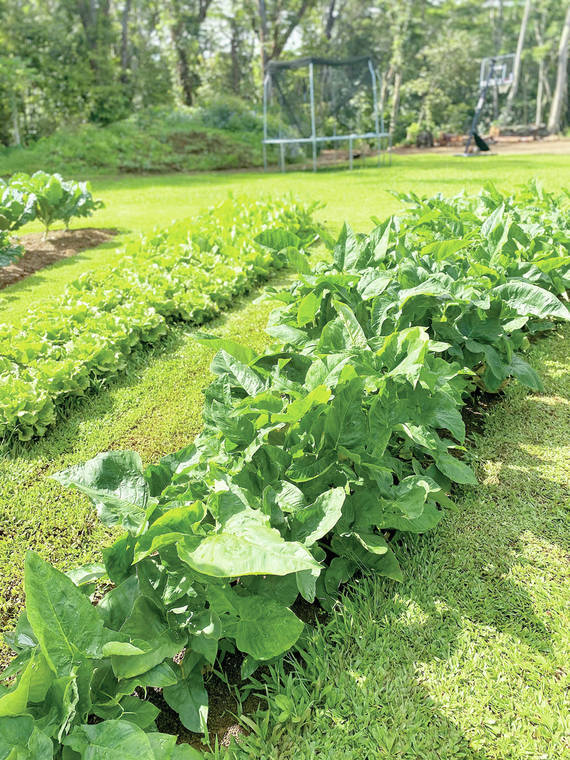
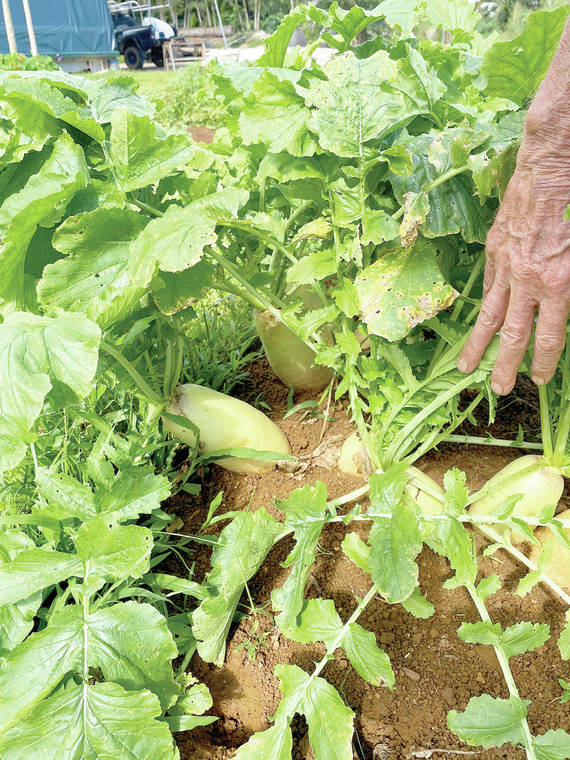
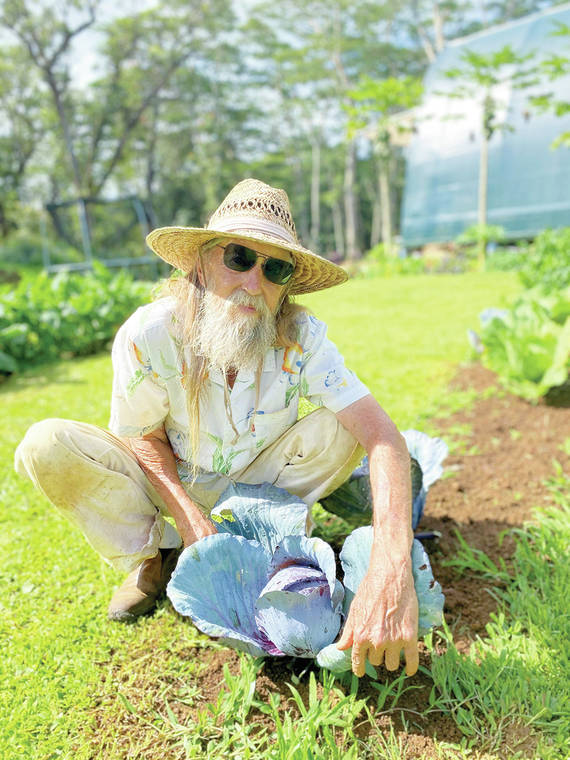





Hurray for the hero people like Sun Hadley! “Can” our amazing Kauaian community ohana “Imagine” what Mr Z and Ms Chan could do to enhance these teaching-learning experiences for the island peoples they so desperately want to be embraced by? Instead, those that have been financially successful, noted to be “philanthropist” have this mindset, “all for me and MY keiki, and none for you”. They using their dollars to lock out that same community because they are politically and judiciarily motivated to do the opposite aNd at the same time continuing the ruse or our weird mixed martial law tactics to keep us slaving away, literally cordoned off from where we were born and raised to wander freely without yellow-gated accesses denied by the DLNR/SHPD U.S. government and vast military departments, OR those COK personnel current to retroactively, that have been bought off, as well as, the Ige-noring types who need to back up or pay to play with truth and integrity. NO more lies, maneuvers, manipulations, or mob criminal behavior will be tolerated. The light is on and these lands will be flipped correctly on the several dozen winds and songs that outlines these issues 128-years earlier to the present. Due Diligence research and answers found at HawaiianKingdom.org
I look forward to being back on island this week, where I got my master gardeners certification in 2017. Will retake the course and then get active to continue the learning and giving back. Look forward to also meeting Mr. Hadley and receiving his knowledge. I also wonder what impact, if any, how bio-char has on bio-intensive farming. Would be a great series of articles to read.